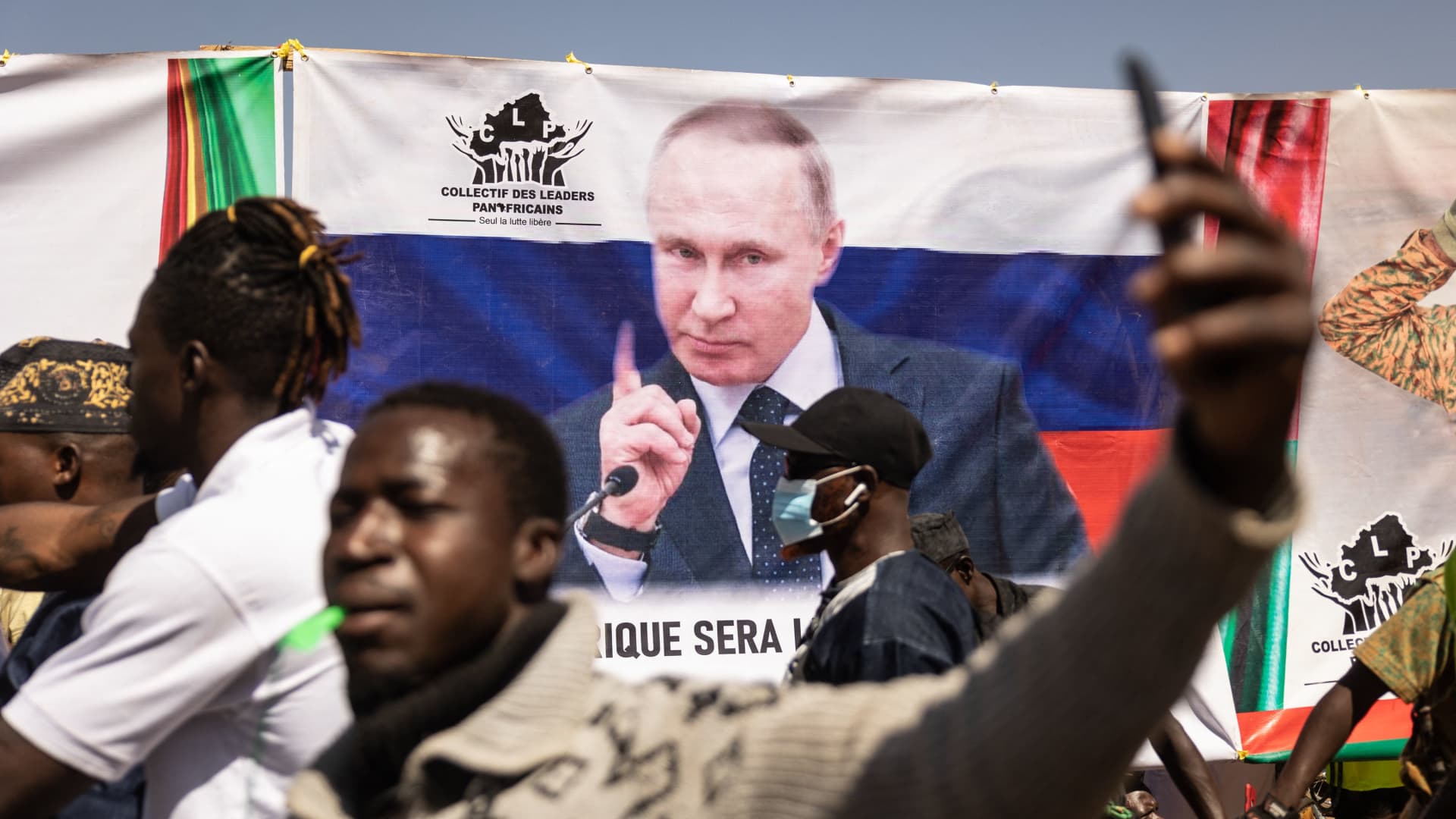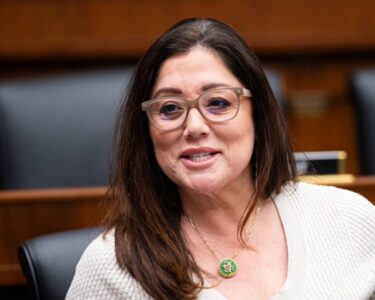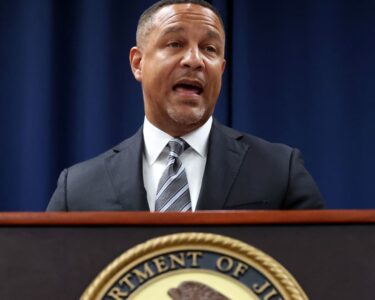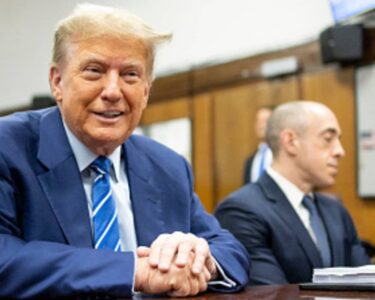Russia’s military intelligence service is offering African governments a “regime survival package” that provides military and diplomatic support in exchange for access to strategically important natural resources, according to a new report.
The Royal United Services Institute (RUSI), the world’s oldest defense and security think tank, detailed how the rebranded Wagner Group in Africa is working to consolidate and expand Moscow’s strategic relationships across the continent, through guarantees of regime security and geopolitical protection in exchange for lucrative mining concessions.
Russia’s Defense Ministry was not available to comment on the report’s findings when contacted by CNBC.
Wagner has for many years been a key component of the Kremlin’s efforts to grow its influence in politically unstable countries across central Africa and the Sahel, including the Central African Republic, Mali, Burkina Faso and Sudan.
However, since the death last summer of its former leader Yevgeny Prigozhin, the group’s operations have been subsumed by Russia’s overseas military intelligence unit, known as the GRU.
The report’s authors Jack Watling, Oleksandr V Danylyuk and Nick Reynolds explained that the GRU chose to divide Wagner’s activities in two.
The first, known as the Volunteer Corps, covered Wagner’s former operations in Ukraine, with other private military contractors such as Redut providing the legal mechanism for Wagner fighters to sign up, before the companies signed contracts with the Russian Military of Defense, effectively bringing them under GRU control.
The second, the Expeditionary Corps, picks up the dismantled paramilitary group’s activities overseas and uses a range of companies as fronts for fighters to sign up, but also aims to recruit and train local forces in territories where Wagner was active.
This unit is led by Andrei Averyanov, widely suspected to have played a role in the plane crash that killed Wagner’s mutinous leader Yevgeny Prigozhin and much of its top command.
The RUSI report said Russian authorities assessed the strengths and weaknesses of Moscow’s Africa strategy in the wake of the defense ministry’s dismantling of Wagner, following a failed coup. Documents allegedly revealed a “vision of exploiting access for a more concerted attack on Western interests.”
“For example, it is proposed that Russia’s relations with Niger could be used to threaten French access to uranium mined in the country, further increasing the French energy sector’s dependence on Russian-supplied uranium,” the report said.
“The ‘offer’ the GRU is now pushing is being internally described as the ‘regime survival package’. The logic of this offer is that Russia will provide elites in target countries with military support, economic and political protection from backlash via the UN or other international mechanisms, and the support of political technologists to sell their popularity domestically.”
Central to the package is the isolation of the target country’s leadership, and the report detailed how the Expeditionary Corps in Mali now provides personal protection to the president, ensuring consistent proximity to decision-making at the highest point of government. This is very similar to the strategy deployed by Wagner in the Central African Republic.
As also evidenced in the Central African Republic, Wagner was also highly adept at creating domestic information channels through which to disseminate the Kremlin’s message. RUSI highlighted that these efforts run alongside the aim of closing off relationships that target countries have with the West, where partners are reluctant to maintain links with partner military’s in the event of massacres or international law violations.
In this regard, the GRU at this moment in time sees uniquely fertile ground. Russian flags and messages of support for Russian President Vladimir Putin have become commonplace at mass protests in support of recent military takeovers, or against traditional governments, across Africa.
“First, with the U.S. increasingly fixated on the Indo-Pacific and European attention saturated by the war in Ukraine, most African operations have become economy-of-force affairs,” RUSI said.
“Moreover, the disparity in resourcing and attention paid to Ukraine or Gaza as compared to Tigray, for instance, has left a strong and bitter sense across Africa as to the hierarchy of Western concerns.”
This has been compounded by the “apparent contrast” in Western rhetoric between descriptions of destruction in Ukraine and Gaza, leaving many in Africa seeing a gap between the values practised by Western powers and those demanded from partners on the continent.
RUSI suggests that Moscow is exploiting an opportunity to use persistent instability in Africa to push migration into Europe and trigger further political destabilization, all part of a long game of unconventional warfare.
Finland recently shut down its Russian borders, accusing Moscow of funnelling migrants toward them in response to the country’s NATO ascension, an accusation the Kremlin denies.






